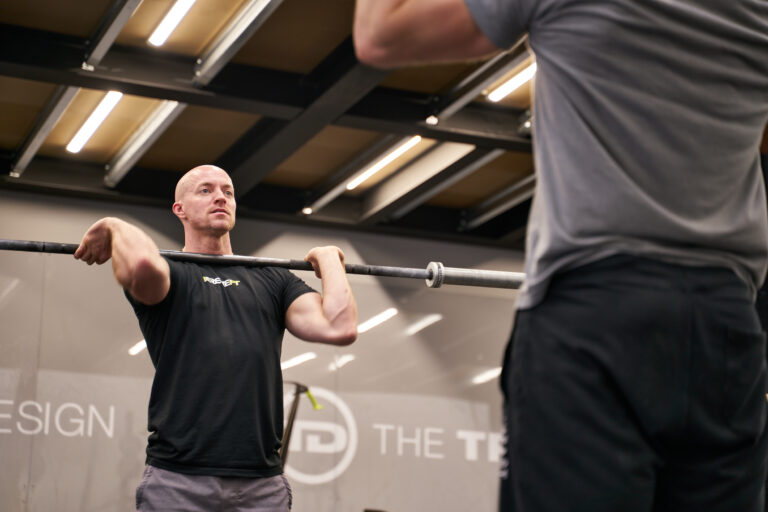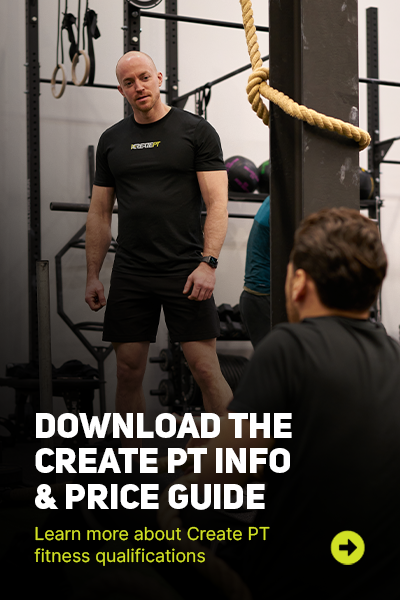Fitness is not a one-size-fits-all venture; it’s a personalised journey that varies from one individual to another. Whether you’re an athlete, a fitness enthusiast, or a health-conscious individual, it’s essential to understand the physiological principles of fitness training that underlie effective training. These principles include Specificity, Progressive Overload, Reversibility, Adaptability, Individuality, and Recovery Time. In this article, we’ll explore each of these principles and their physiological implications, so you can better tailor your training programme.
Before looking at any of these principles however, the first step to effective programme design is a thorough consultation. The programme you write for a client should be based around the information you have gained from them. This includes their routine, training history, availability, age, a load more variables but most importantly their goals. You could write the best programme in the world but if it is not based around your client achieving their goals they are very unlikely to stick to it.
The Principles of Fitness Training
Specificity
One of the cornerstone principles of effective training is Specificity. This principle states that training should be tailored to the specific demands of the activity you’re preparing for. For example, a marathon runner would focus on long-distance, low-intensity training, while a sprinter would focus on high-intensity, short bursts of exercise. The physiological impact here is significant—your muscle fibres, energy systems, and motor skills adapt in highly specific ways based on the type of training you undertake.
Example: Imagine you are a basketball player working on your jump shot. Practicing sprints or long-distance running won’t be as beneficial as exercises that improve your vertical jump, such as plyometrics or box jumps. This specificity in training ensures that the muscles and motor skills you need for your sport are the ones being developed.
Progressive Overload
Progressive Overload is the idea that the body only adapts when it’s challenged beyond its existing capabilities. So, as you become more comfortable with your exercise routine, it’s crucial to increase the intensity to continue seeing results. The physiological implications of this principle can include increased muscle mass, improved cardiovascular function, and enhanced neural pathways for movement.
We have recently started working with Archon App who offer a fitness testing app that provides a kind of handicap based on your age, gender, weight and other metrics. This means you can see how you rank alongside your peers who may be older, heavier, etc and it should level the playing field and end the debate for good as to who’s the fittest!
Example: You start lifting weights with a 10kg dumbbell and find it challenging initially. As your strength improves, lifting 10kg becomes easy. To continue to make gains, you increase the weight to 15kg, ensuring that your muscles are continually challenged.
Reversibility
Remember the saying, “use it or lose it”? That’s essentially the Reversibility principle. If you stop exercising or significantly reduce the intensity and frequency of your workouts, you’ll lose the gains you’ve made. Physiologically, you may experience muscle atrophy, a decrease in cardiovascular efficiency, and a slowdown in metabolic rates.
Example: Consider someone who was an avid runner but had to take a break due to an injury. After a few months of no activity, they find that they can’t run as fast or as long as they used to, which is a clear sign of reversibility in action.
Adaptability
The human body is remarkably adaptable, capable of adjusting to a wide range of conditions or stimuli. Whether you’re an athlete preparing for a high-altitude event or someone adjusting to a new type of exercise, your body will undergo physiological changes to meet these new demands. These changes might include improved oxygen-carrying capacity, or increased red blood cell production, among others.
Example: You’ve always been a runner, but recently you decide to take up swimming. Initially, it’s a struggle as different muscles are involved, but after a few weeks, you notice it becomes easier. Your body has adapted to this new form of exercise.
Individuality
Everyone’s body is different, and as such, responses to fitness training can vary widely between individuals. Some may experience rapid gains in strength, while others may find that endurance activities come more naturally. This principle suggests that customised training programmes, tailored to an individual’s unique physiology, are generally more effective.
Example: Two friends decide to start a weightlifting programme together. After a month, one friend notices significant gains in muscle mass, while the other sees more improvement in their endurance. Their bodies are responding differently to the same stimuli, emphasising the principle of individuality.
Recovery Time
Recovery is not just about catching your breath after a strenuous workout; it’s a critical component for physiological improvements to occur. During this time, damaged tissues repair, metabolic waste is cleared, and energy stores are replenished. Ignoring the importance of recovery time can lead to overtraining, which can suppress the immune system and elevate the risk of injury.
Example: An experienced cyclist who trains hard without adequate rest days starts to notice a decline in performance and frequent colds. This could be a sign of overtraining and the body’s need for recovery time to repair tissues and boost the immune system.
Understanding these physiological principles of fitness training can drastically improve the effectiveness and efficiency of your training programme. They offer tailored solutions that cater to your individual needs, helping you get the most out of each workout. Whether you’re new to the world of fitness or a seasoned athlete, these principles are essential to achieving your goals in a healthy and efficient manner. If you’re intrigued and want to delve deeper into these topics, our online personal training courses offer comprehensive insights. Within our courses, you’ll explore each of these principles in much more detail, equipping you with the knowledge and skills to maximize your fitness potential.
Hell Spin Casino
Das Hell Spin Casino ist eine beliebte Online-Spielplattform mit einer breiten Auswahl an spannenden Spielen und attraktiven Hell Spin CasinoBoni. Die Website bietet eine benutzerfreundliche Benutzeroberfläche und schnelle Auszahlungen für die Spieler. Mit einer Vielzahl von Spieloptionen und einem professionellen Kundensupport ist das Hell Spin Casino eine erstklassige Wahl für alle, die gerne online spielen.







